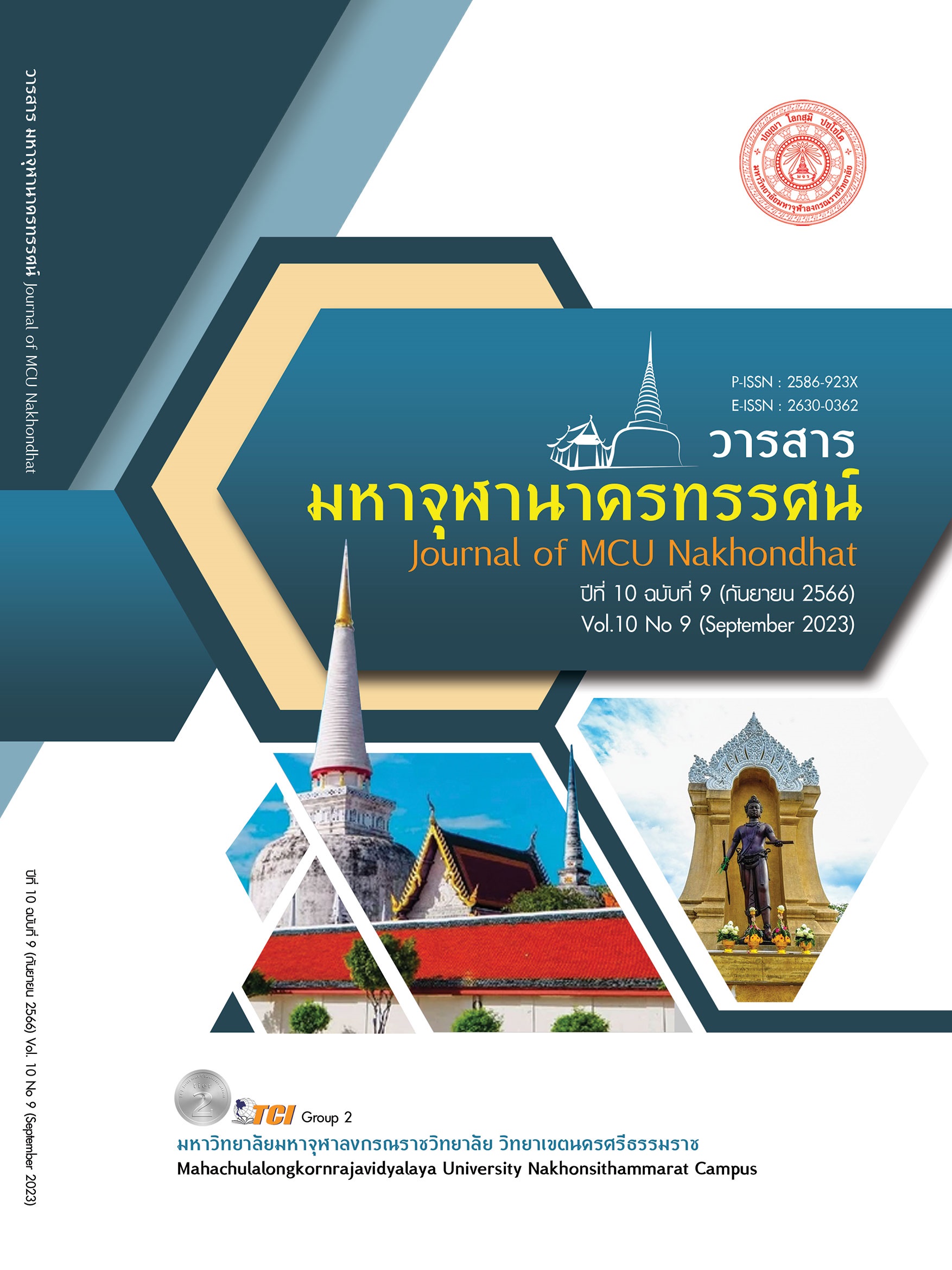TECHNOLOGICAL SKILLS DEVELOPMENT FOR COMMUNITIES TO SUPPORT AN AGING SOCIETY
Main Article Content
Abstract
The purpose of this research was to study the effects of technological skill development for communities. To support the aging society by using participatory action research methodology, there were 2 phases, 10 steps, 12 participants, 5 key informants, and the target group was 35 elderly people. The research tools were questionnaires, interviews, and conversations. The data was collected and then report writing according to the research objectives. The results showed that the development of technology skills for community members to support the aging society, by training communication skills through a variety of channels, both offline and online. The total number of activities was 30 hours. The contents were using the level and language to communicate their needs, such as family communication in the community and training on the use of technology as a communication tool, such as using a mobile phone, application Line and Facebook for contact and coordination in taking care of the elderly group, family members and community leaders. In addition, the results of the design of group activities for members of various age ranges, including children, children of community members, middle - aged (40 - 50 years old), preparatory age for the elderly (50 - 60 years old) and the elderly cause learning together, especially good interaction between the multi - generational groups who have participated in activities together. As a result, the elderly was satisfied at a high level. They can be used in everyday life access to news information and can contact and coordinate quickly in case of problems that require cooperation. or assistance between groups Gain knowledge and understanding in a variety of channels Able to communicate needs and necessities in daily life with quality.
Article Details

This work is licensed under a Creative Commons Attribution-NonCommercial-NoDerivatives 4.0 International License.
References
เพ็ญแข ประจนปัจจนึก. (2550). รายงานวิจัยฉบับสมบูรณ์เรื่องการจัดการศึกษาและการเรียนรู้ตลอดชีวิตเพื่อเตรียมความพร้อมในการพัฒนาภาวะพฤฒิพลังในผู้สูงอายุไทย. กรุงเทพมหานคร: สำนักงานกองทุนสนับสนุนการวิจัย.
จิราพร เกศพิชญวัฒนา. (2549). รายงานการวิจัยโครงการพฤฒิพลัง: กรณีศึกษาจากผู้สูงอายุที่ได้รับการยอมรับในสังคม. กรุงเทพมหานคร: สำนักงานกองทุนสนับสนุนการสร้างเสริมสุขภาพ.
มูลนิธิสถาบันวิจัยและพัฒนาผู้สูงอายุไทย. (2552). รายงานสถานการณ์ผู้สูงอายุไทย พ.ศ. 2551. กรุงเทพมหานคร: ทีคิวพี.
วิพรรณ ประจวบเหมาะ และคณะ. (2552). รายงานการศึกษาโครงการปรับแผนผู้สูงอายุแห่งชาติ ฉบับที่ 2 (พ.ศ. 2545 – 2564). กรุงเทพมหานคร: วิทยาลัยประชากรศาสตร์ จุฬาลงกรณ์มหาวิทยาลัย.
สุทธิชัย จิตะพันธ์กุล และคณะ. (2545). ผู้สูงอายุในประเทศไทย: รายงานการทบทวนองค์ความรู้ และสถานการณ์ในปัจจุบัน ตลอดจนข้อเสนอแนะทางนโยบายและการวิจัย. กรุงเทพมหานคร: ภาควิชาอายุรศาสตร์คณะแพทยศาสตร์ จุฬาลงกรณ์มหาวิทยาลัย.
สุมาลี สงข์ศรี. (2547). การพัฒนาชุมชนเมืองแห่งการเรียนรู้สำหรับสังคมไทย. กรุงเทพมหานคร: พริกหวานกราฟ - ฟิค.
อาชัญญา รัตนอุบล และคณะ. (2554). การศึกษาและการเรียนรู้ตลอดชีวิตของผู้สูงอายุไทย. กรุงเทพมหานคร: มูลนิธีสถาบันวิจัยและพัฒนาผู้สูงอายุไทย.
Knodel, J., & Chayovan, N. (2008). Population aging and the well – being of older persons in Thailand: Past trends, current situation and future challenges. Bangkok: UNFPA, Thailand.
Lawlor, D., & Thomas, A. (2008). Residential design for aging in place. New Jersey: John Wiley & Sons.
Lowton, M. P. (1975). Planning and managing housing for older people. New York: John Wiley & Sons.
United Nations. (2009). World population aging. New York: Department of Economic and Social Affairs. Population Division.
World Health Organization. (2022). Global age - friendly cities: a guide. World Health Organization. Retrieved May 18, 2022, from https://apps.who.int/iris/handle/10665/4375


